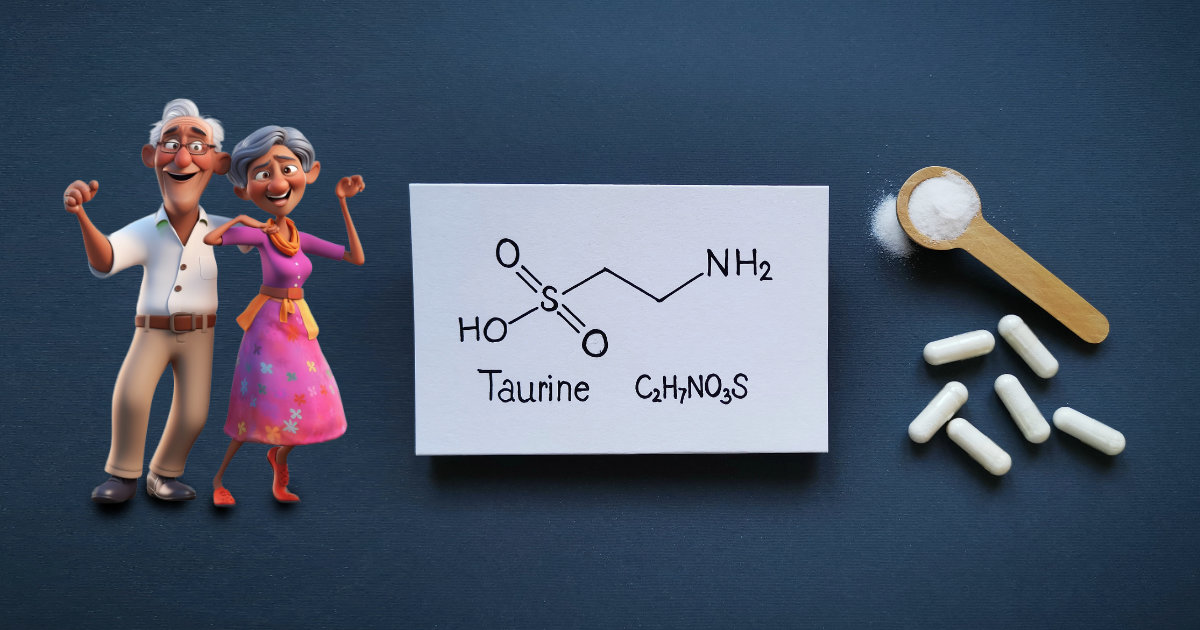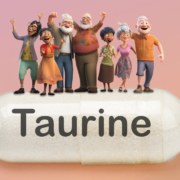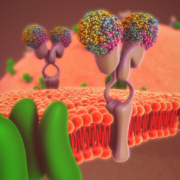Taurine’s Effects on Aging
A recent research paper examined the amino acid taurine and its connection to aging; in fact, the title of the research paper is “Taurine as a Driver of Aging.” It was published in the journal Science in June 2023; it’s open access if you’re interested in reading the article itself.
Taurine is a sulfur-containing amino acid that can be made from the amino acids methionine or cysteine metabolism. It plays a role in several essential body functions, such as regulating calcium levels in certain cells, manufacturing bile salts, balancing electrolytes in the body, and supporting the development of the nervous system. There is one more way that taurine may benefit us: taurine appears to be important in mitochondrial health as well. And when you think mitochondria, think energy.
In the first part of the study, the researchers examined taurine levels at various ages during the lifespan of several species. They looked at mice, macaques, worms, yeast, and human beings. The results were absolutely clear: as these species got older, the taurine levels decreased substantially. While all species had other metabolic functions going on, the stark drop in taurine certainly appeared to be related to the decline of many body systems.
But how do you test that? You supplement the diet of the particular species with taurine. That’s what the researchers did, and I’ll tell you what happened on Saturday.
What are you prepared to do today?
Dr. Chet
Reference: https://www.science.org/doi/10.1126/science.abn9257









